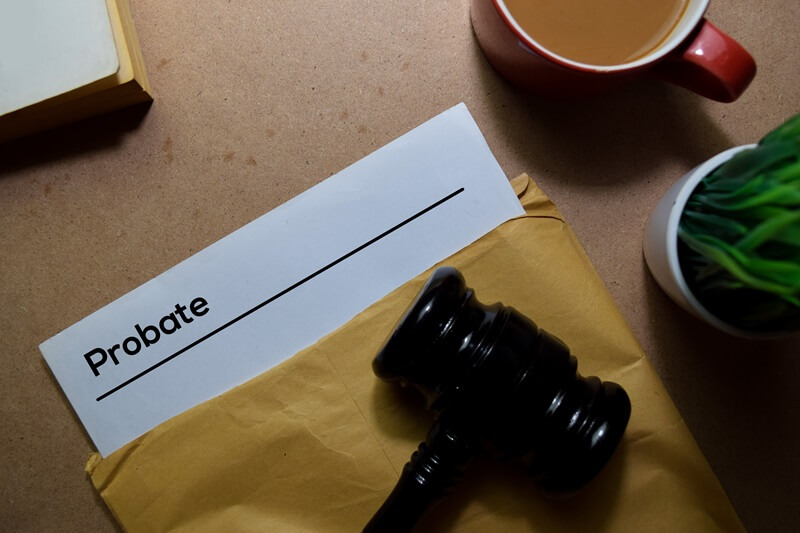Defense Strategies Trustees Employ In Trust Litigation
Trustees are vital in managing trust assets and ensuring beneficiaries are treated fairly. Yet, trust litigation can create stormy waters for even the most diligent trustees. Defending against allegations is essential to protecting your trust and reputation.
Effective strategies can transform an uphill battle into a manageable process. This article explores common challenges trustees face and outlines actionable steps to strengthen their defense. Whether you’re dealing with disputes over accounting, asset distribution, or fiduciary duties, a skilled attorney is your dependable ally.
Understanding Trustee Duties & Potential Breaches
Acting as a trustee is like being the ship’s captain—you’re responsible for steering it safely while maintaining the trust of those aboard. Trustees are bound by fiduciary duties that demand loyalty, prudence, and impartiality. They must act solely in the best interest of the beneficiaries, avoiding self-dealing or any conflicts of interest.
Managing trust assets responsibly requires prudence, adhering to sound financial principles, and exercising care in every decision. When multiple beneficiaries are involved, impartiality is essential; trustees must balance competing interests fairly, ensuring no favoritism influences their actions.
These duties form the backbone of a trustee’s role. Any perceived violation of these principles may lead beneficiaries to file a claim. Common allegations they may receive include:
- Breach Of Trust: Accusations of mismanagement, such as making risky investments or failing to follow trust terms.
- Failure To Account: Beneficiaries may allege insufficient or unclear reporting of trust activities.
- Conflict Of Interest: Trustees accused of prioritizing personal gain over beneficiary interests.
- Neglecting Beneficiary Rights: Failing to distribute assets or provide required disclosures promptly.
Such claims often arise when beneficiaries feel uninformed, excluded, or that their interests have been compromised. Trustees who remain diligent and transparent are far less likely to face litigation.
Understanding the core duties and potential breaches arms trustees with the knowledge to anticipate and mitigate issues before they escalate. With these principles in mind, trustees can confidently approach proactive strategies before they can be brought to litigation.
Pre-Litigation Strategies
Pre-litigation preparation serves as a crucial defense against potential trust disputes. By taking proactive measures, trustees can minimize the likelihood of litigation and strengthen their position if a legal challenge arises.
The goal is establishing a solid foundation that can withstand scrutiny, like reinforcing a structure before a storm. A well-prepared trustee can often avoid conflict or be better positioned in the event of litigation.
Build A Strong Foundation
Maintaining detailed records and clear communication are vital to avoiding litigation. Document every transaction, decision, and correspondence to create a strong paper trail. Regular updates to beneficiaries build trust and reduce misunderstandings that often lead to claims.
Seeking early legal guidance helps identify potential issues, review trust terms, and ensure sound decision-making, preventing minor conflicts from escalating. Together, these practices foster transparency, minimize disputes, and strengthen the trustee’s position in managing trust responsibilities effectively.
Anticipate & Address Beneficiary Concerns
Regular meetings with beneficiaries help address concerns directly, fostering cooperation and reducing the likelihood of legal action. Open discussions build trust and allow beneficiaries to feel heard, minimizing dissatisfaction.
Additionally, disclosing significant decisions, such as large distributions or expenditures, ensures transparency and reinforces confidence in the trustee’s role. This proactive communication reassures beneficiaries that their interests are prioritized, and decisions are made responsibly and with integrity, fostering a more harmonious trust administration process.
Conduct A Risk Assessment
Trustees should evaluate the trust’s provisions for potential vulnerabilities. Identifying areas such as ambiguous distribution instructions or conflicting beneficiary interests allows trustees to plan for possible challenges.
Preparing thorough explanations for contentious decisions demonstrates that actions were taken prudently and by the trust’s terms. This helps mitigate the risk of litigation.
With these proactive measures, trustees can significantly reduce the chances of disputes escalating into legal battles. However, even the most prepared trustee may face litigation. When that happens, adopting robust defense strategies becomes critical to protecting the trust and the trustee’s actions.
Defensive Legal Strategies During Trust Litigation
When trust litigation arises, a strategic defense is paramount to safeguarding a trustee’s actions and upholding the integrity of the trust. Trustees must be prepared to counter claims effectively, using a variety of legal approaches to defend their position.
No Breach Occurred
A strong defense in trust litigation is proving no breach of fiduciary duty occurred. Trustees must show actions complied with trust terms and legal obligations, supported by detailed records like meeting notes, beneficiary communications, and financial reports.
Testimonies from attorneys or accountants who advised the trustee can further validate decisions, demonstrating prudent management and adherence to fiduciary duties. This comprehensive evidence can significantly strengthen the trustee’s position in defending against claims.
Timeliness Of Claims
Challenging the timeliness of a claim is a powerful defense in trust litigation. Trustees can argue that the statute of limitations bars the plaintiff’s case if it was filed outside the legally prescribed timeframe.
This defense is especially compelling when beneficiaries were aware—or should have been aware—of the trustee’s actions but delayed initiating legal proceedings. Proving the untimely claim can result in dismissal or pressure on the opposing party to justify their delay.
Acts Were Authorized
Trustees often defend themselves in litigation by proving their actions were explicitly authorized by the trust. This defense relies on demonstrating that all contested decisions fell within the powers granted by the trust document.
By carefully reviewing the trust’s terms and citing provisions that permitted their actions, trustees can refute allegations of overstepping authority—showing that their decisions aligned with the trust’s instructions or fiduciary discretion can effectively undermine the validity of such claims.
Good Faith Efforts
Trustees can defend their actions by demonstrating they acted in good faith, prioritizing the beneficiaries’ interests even if outcomes were less than ideal. This defense emphasizes the trustee’s intent and reasonable efforts, showing that decisions were made thoughtfully, with professional guidance, and adhered to fiduciary duties.
Presenting evidence of due diligence and careful consideration counters claims of negligence or recklessness. In complex financial situations or ambiguous trust directives, proving good faith can substantially strengthen the trustee’s defense.
Trustees should view litigation as an opportunity to refine their practices when transitioning from defensive strategies to future risk reduction. The lessons learned during disputes can highlight areas for improvement. By addressing these weaknesses, trustees can better align their actions with fiduciary duties, reducing the likelihood of future conflicts.
Improved Approach To Reduce Future Risks
Once trust litigation concludes, trustees have a critical opportunity to reflect on the experience and refine their practices for the future. The lessons learned during litigation can provide valuable insights that help prevent similar issues from arising again.
Review Processes
After litigation, trustees must assess and address any weaknesses that may have contributed to the dispute. This includes reviewing documentation, communication methods, and decision-making protocols.
Trustees can implement new procedures that streamline operations and prevent misunderstandings by identifying gaps or inefficiencies. Whether it’s improving how decisions are documented or ensuring more transparent communication with beneficiaries, addressing these areas early can profoundly impact future legal challenges.
Update Records Regularly
One of the most critical ways trustees can avoid new disputes is by ensuring their records are always current. Regularly updating financial reports, meeting minutes, and other trust-related documents ensures no gaps left that could later spark a claim.
This proactive documentation helps establish transparency and demonstrates to beneficiaries that the trustee consistently fulfills their fiduciary duties. It also minimizes the chance of claims based on incomplete or inaccurate records, providing a more apparent defense should disputes arise again.
Continue Education
To reduce the risk of future litigation, trustees should prioritize staying informed about changes in California trust laws and evolving fiduciary responsibilities. Whether through formal courses, workshops, or consultations, continuing education helps trustees confidently navigate complexes.
By implementing these post-litigation strategies, trustees can significantly reduce the likelihood of future disputes. For added peace of mind and ongoing support, seeking counsel from skilled attorneys can offer invaluable guidance throughout the trust administration process.
Los Angeles Probate Attorneys Defends You In Litigation
At Los Angeles Probate Attorneys, we understand the challenges trustees face when defending trust assets during litigation. We are here to provide the skilled legal guidance needed to navigate California’s complex probate and trust laws. Our attorneys offer tailored advice, ensuring trustees can address disputes and protect the integrity of the trust.
We work closely with trustees to review trust documents, identify potential weaknesses, and build a robust and evidence-based defense. Our role is to advocate for the trustee’s rights, ensuring their actions are well-represented and their interests are protected in court.
Beyond litigation, our experienced attorneys help trustees manage trust assets proactively, ensuring compliance with state regulations, minimizing tax risks, and preventing future disputes. With our skills and comprehensive approach, trustees in Los Angeles can rely on us to provide clarity, reassurance, and robust support.
Summary
Trustees are critical in managing trust assets and ensuring fair treatment of beneficiaries. Effective defense strategies, including proving no breach of fiduciary duties, are vital to protecting the trust’s integrity when faced with trust litigation. Proactive measures, such as maintaining clear communication, can significantly reduce the risk of disputes.
After litigation, trustees should review processes, update records regularly, and stay informed about legal changes to prevent future issues. With the support of Los Angeles Probate Attorneys, trustees can navigate these challenges confidently and safeguard their interests.










